In this article, I take a deep dive into what I believe are the key skills every good hunter should have. This is my personal experience of what makes a successful hunter, but I’m sure we all have something we could add. By breaking down the skills required for hunting, hopefully the reader will be able to identify a couple of areas they can brush up on.
1. MARKSMANSHIP
Marksmanship is an age-old skill and when done well, is part science, part practice and part art form. As a hunter, it’s your responsibility to take your game animal as quickly and ethically as you can; you need to be able to place your shot where you want it and know what your limitations are in doing this.
A basic understanding of internal, external and terminal ballistics is important. Understanding is not enough, however – the successful hunter needs to have spent a good amount of range time working on fundamentals, practising the basics required to release the perfect shot. This is key to putting that animal down in one shot which should be every hunter’s priority when out hunting. Consider your breathing, trigger control, controlling/holding the firearm, and importantly – what is often overlooked – what impact different shooting positions have on all these fundamentals.
Ask yourself these questions to get an idea of where you might need to brush up:
1. What’s the maximum range within which I can effectively place a shot where I want it, and how is this affected by weather/atmospherics?
2. Can I shoot accurately from different shooting positions, and how does this change the point of impact?
3. Can I read wind effectively, and how does wind affect my maximum distance?
4. At what range is my projectile’s maximum lethality?
Having answers to these questions is going to increase your chances of making quick, clean, one-shot kills. It’ll enable you to make better decisions about wind calls and when a normally within-range shot is no longer an ethical shot due to strong wind. Kiwi shooting ranges all have a healthy population of good instructors willing to pass on knowledge and help a newer shooter. Joining a club is also a great way to upskill and find a mentor.
2. MENTAL TOUGHNESS/PHYSICAL FITNESS
Hunters are a tough breed and they need to be. Leaving the comfort and security of modern life and hunting any wilderness has risks and we need to be up to the challenge. Weather, terrain and carrying heavy loads long distances are all hazards to the hunter and ones we must be able to cope with to venture safely into the mountains.
The term ‘physical fitness’ doesn’t quite cover the requirements of a hunter although it plays a part – a more apt term would be ‘mental toughness’. The difference is, when you’re mentally tough, the level of your fitness is somewhat irrelevant. The resolve and strength of your will to place one foot after the other in the sound knowledge that you can cover good distances is a great boost to your confidence.
Some of our older hunters might not score well on a straight fitness test in a gym but will destroy your average person on a long, drawn-out hill climb with a pack on their back. Mental toughness is created through experience, battles won, hills climbed and failures and successes; there’s no shortcut or cheat sheet, team. Set yourself some tough goals, long walks and multi-day hunts and get into it – the rewards are worth it!
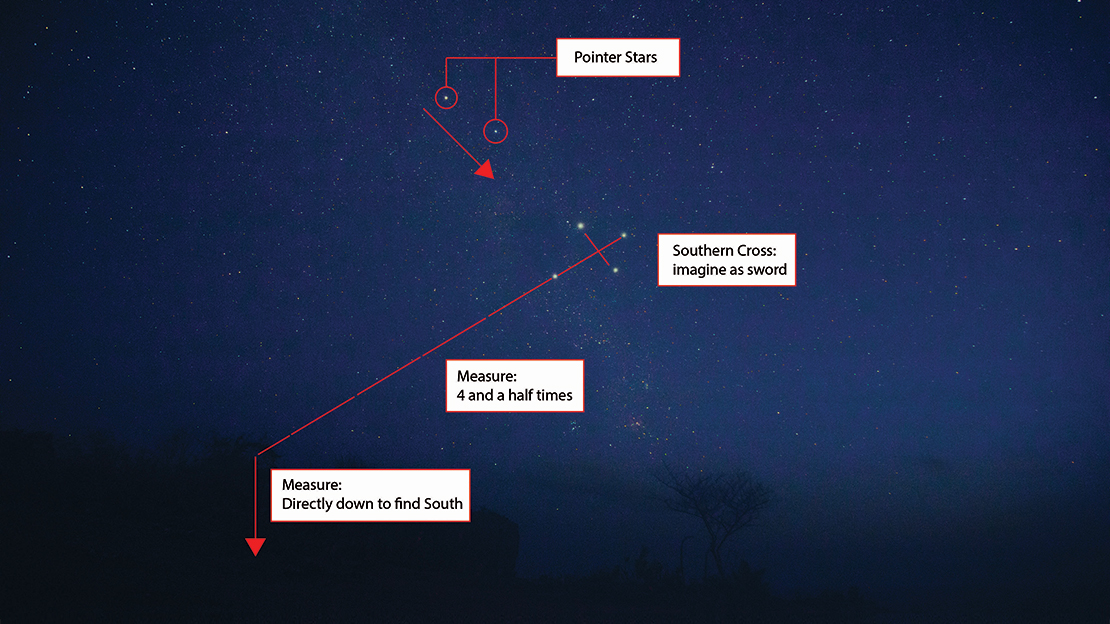
3. NAVIGATION
Even with the invention of Global Positioning Systems (GPSs), being able to read a map and use a compass are skills you still need; you should always carry a map and compass when out hunting. Although a handheld GPS is very reliable, anything electronic can fail – batteries die and anything portable can be dropped and lost and, in that situation, you must have a backup.
In an emergency, small pieces of knowledge can make all the difference; knowing the sun rises in the east and sets in the west or how to find north using the Southern Cross are all very basic skills that may save your life one day.
I highly recommend studying maps of the area you’re going to hunt and coming up with a basic emergency plan for if your GPS goes down or you lose your map. For example, in cases of emergency:
• Knowing you have a large river running roughly north-south from your hunting area that has a track crossing downstream.
• Knowing how a ridge system works and the catchments they empty into.
• The knowledge that, if followed, a river runs all the way out to farmland.
Broad pieces of information such these are all good emergency plans you can use as a backup in case you somehow lose any form of navigation system; having a bail-out plan using this basic information is important and has saved many lives over the years.
4. BUSHCRAFT
To me, bushcraft is all about venturing into the wilderness feeling comfortable and confident; this comes with time spent on the hill observing others and learning. Setting up a correctly sighted camp where you’ll be out of the wind and protected from the worst of the weather whilst avoiding any pooling rainwater, identifying native flora and fauna, reading sign left by animals and surviving any of the weather changes Mother Nature has to throw at you all come from experience.
Experience leads to confidence, confidence leads you to explore, and the more you explore, the more comfortable you’ll feel. Bushcraft comes with time – use your ears, watch experienced hunters and don’t be afraid to
ask questions.
5. FIRST AID
Every hunter, whether they hunt private blocks or public mountain ranges, needs to have a basic understanding of first aid. I cannot emphasise this enough. If you’re going hunting without a first aid kit and no knowledge of how to stop bleeds or treat breaks, then you’re an idiot. When you’re in the backblocks, you’re the only person responsible for the immediate application of first aid to both yourself and those around you. You need a basic understanding of how to stop a bleed, how to immobilise and treat a broken bone and how to keep someone as stable as you can until help arrives.
Completing a first aid course and gaining a good understanding of the basics is invaluable. The list of people who have saved lives by timely and effective first aid is long; conversely, the graveyards are full of those who weren’t prepared. Be aware that once you’ve completed a course, you’ll need to brush up every year or so to stay current of any changes as well as to refresh your memory.
First Aid Course Providers:
• PRACMED Stop the Bleed and first aid courses, IFAK and equipment.
• ST JOHNS AMBULANCE basic first aid moving onto more advanced first aid courses.
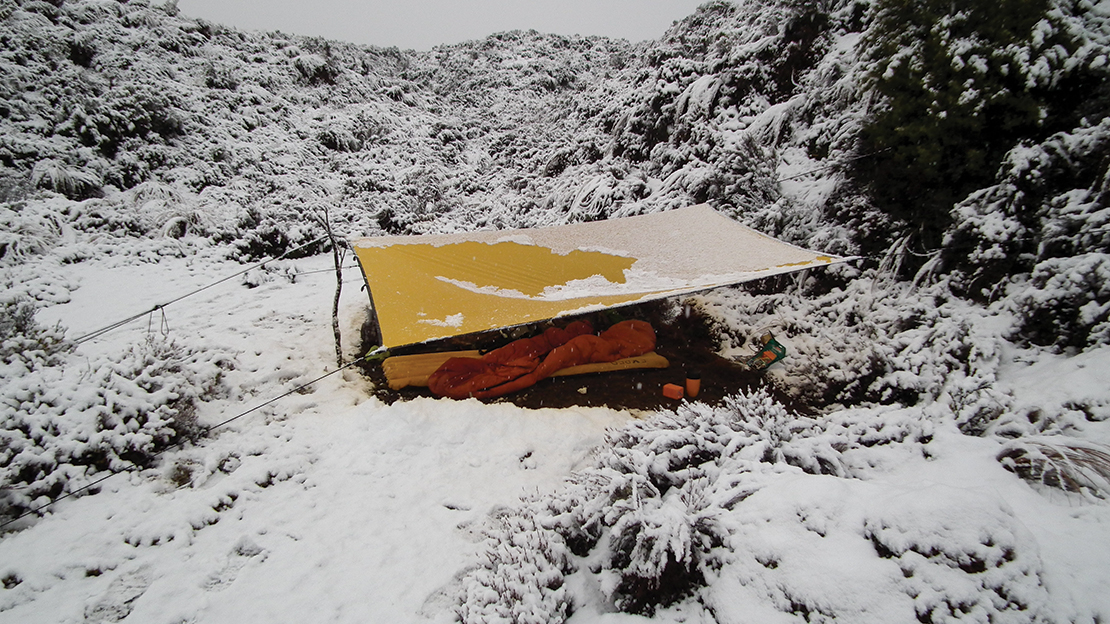
6. OBSERVATION AND PATIENCE
A good hunter is part David Attenborough as much as Bear Grylls. Observing nature and building knowledge of how your quarry moves around an area and how the seasons and weather affect that movement is very important. Halfway up the ridgeline, hanging basins, mountain beech and red beech forest, gulley heads and river flats are all examples of terrain that deer will frequent at various times of the year or in differing weather patterns. All deer species have a slightly different pattern and their own idiosyncrasies – it’s your job to build your knowledge of these patterns. Knowing where and when to look will increase
any hunter’s success rate and again, this comes through being inquisitive and exploring as much as you can.
Glassing an area is also within the realms of observation, and it’s not just how you glass … it’s when you glass. Knowing when to pull up and get the binoculars out for an hour, when you should be moving, and where animals might be all give you the advantage. Deer are always easier to spot when you’re static and they’re moving, and the reverse applies.
Another important aspect is reading the ground and conditions around you and being able to plan a stalk which effectively puts you as near to a deer population as possible. By looking at the ground in front of them, a good hunter will be able to make a rough assumption of where animals will be holding. Mostly, you learn this through spending time on the hill and by watching others hunt.
ADDITIONAL SKILLS
Butchery
Every hunter needs at least a basic level of knowledge and ability to get their animal off the hill and in a condition that maximises the amount of usable meat. Some of you process your own meat or get a butcher to assist.
There are some courses available to help you on this journey:
• NZDA HUNTS Course. Contact your local NZDA club.
• Precision Shooter run a Dressing and Processing course near Auckland.
Bush Chef
We all know someone who, while you’re eating your gruel, pulls out a few ingredients and makes a veritable feast. We all know that guy and on a week hunt or longer, he’s a good man to copy!
SUMMARY
This is by no means a comprehensive list of what makes a successful hunter – it’s my personal take on the subject, but it offers a breakdown for the beginner and even an opportunity for the experienced hunter to have a more detailed look at areas they might improve on.
Be brutal in your self-assessment of where your weaknesses lie. First aid training springs to mind as an area where some hunters should consider investing some money. Whatever section you identify as needing some work, you’re only a range day, phone call or shop visit away from rectifying it.
When the deer are plentiful and the hunting is good, filling the freezer isn’t a problem for most hunters; the different hunters are those who can fill the freezer in the tough, hard-to-hunt periods or who are usually successful in heavily hunted areas – we can all learn from these skilled hunters.
I hope this has given you some food for thought – good luck!

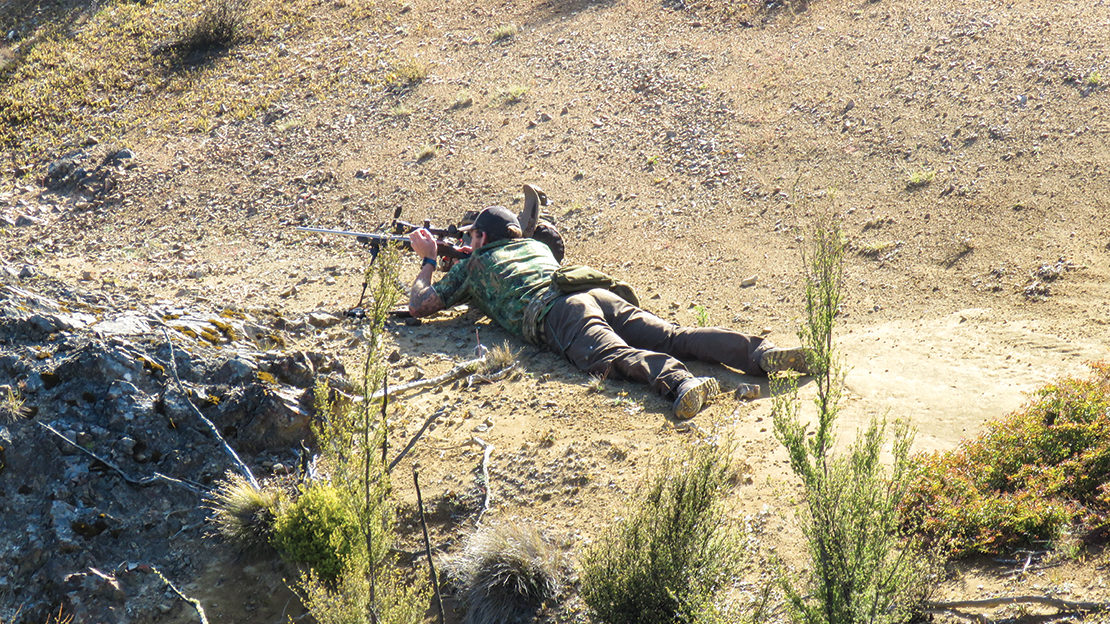
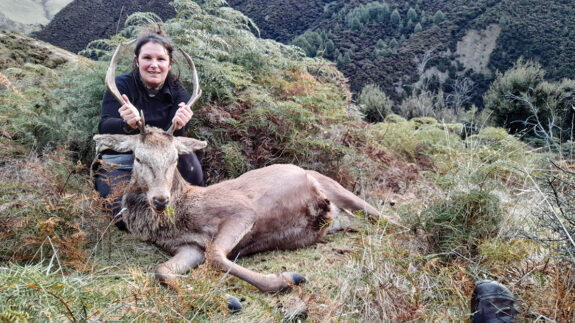
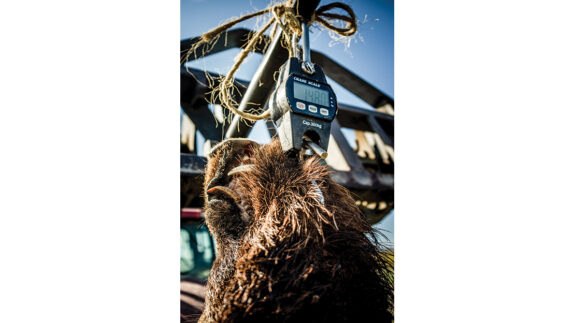

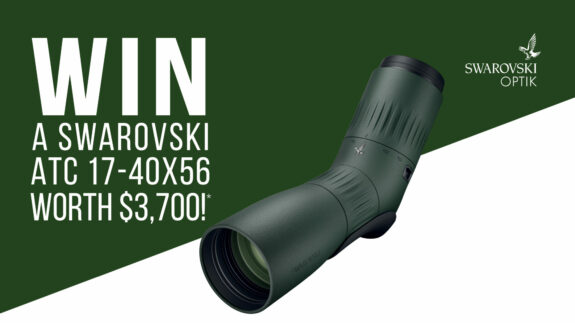
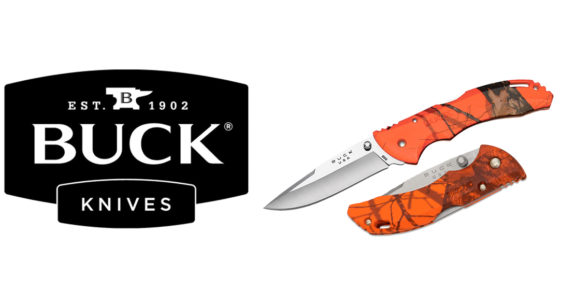
SHARE YOUR BEST PICS #NZRODANDRIFLE